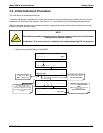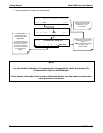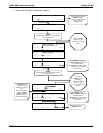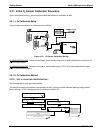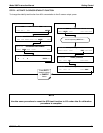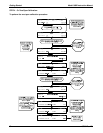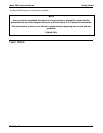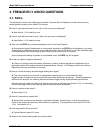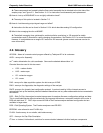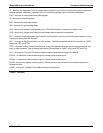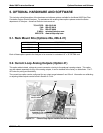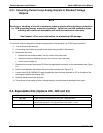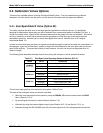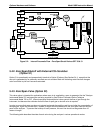
Model 360E Instruction Manual Frequently Asked Questions
4. FREQUENTLY ASKED QUESTIONS
4.1. FAQ’s
The following is a list from the Teledyne Instruments’ Customer Service Department of the most commonly
asked questions relating to the Model CO
2
Analyzer.
Q: How do I get the instrument to zero / Why is the zero key not displayed?
A: See Section 11.3.4 Inability to zero.
Q: How do I get the instrument to span / Why is the span key not displayed?
A: See Section 11.3.3 Inability to span.
Q: Why does the ENTR key sometimes disappear on the Front Panel Display?
A: During certain types of adjustments or configuration operations, the ENTR key will disappear if you select
a setting that is nonsensical (such as trying to set the 24-hour clock to 25:00:00) or out of the allowable range
for that parameter (such as selecting an iDAS Holdoff period of more than 20 minutes).
Once you adjust the setting in question to an allowable value, the ENTR key will re-appear.
Q: Is there an optional midpoint calibration?
A: There is an optional mid point linearity adjustment; however, midpoint adjustment is applicable only to
applications where CO
2
measurements are expected above 100 ppm. Call Teledyne Instruments’ Service
Department for more information on this topic.
Q: How do I make the display and data logger analog input agree?
A: This most commonly occurs when an independent metering device is used besides the data
logger/recorded to determine gas concentration levels while calibrating the analyzer. These disagreements
result from the analyzer, the metering device and the data logger having slightly different ground levels.
Both the electronic scale and offset of the analog outputs can be adjusted (see Section 6.13.4.3). Alternately,
use the data logger itself as the metering device during calibrations procedures.
Q: How do I perform a leak check?
A: See Section 9.3.3.
Q: How do I measure the sample flow?
A: Sample flow is measured by attaching a calibrated rotameter, wet test meter, or other flow-measuring
device to the sample inlet port when the instrument is operating. The sample flow should be 800 cm
3
/min
10%. See Section 9.3.4.
Q: How long does the IR source last?
A: Typical lifetime is about 2-3 years.
Q: Where is the sintered filter/sample flow control orifice?
05232 Rev B3 35



